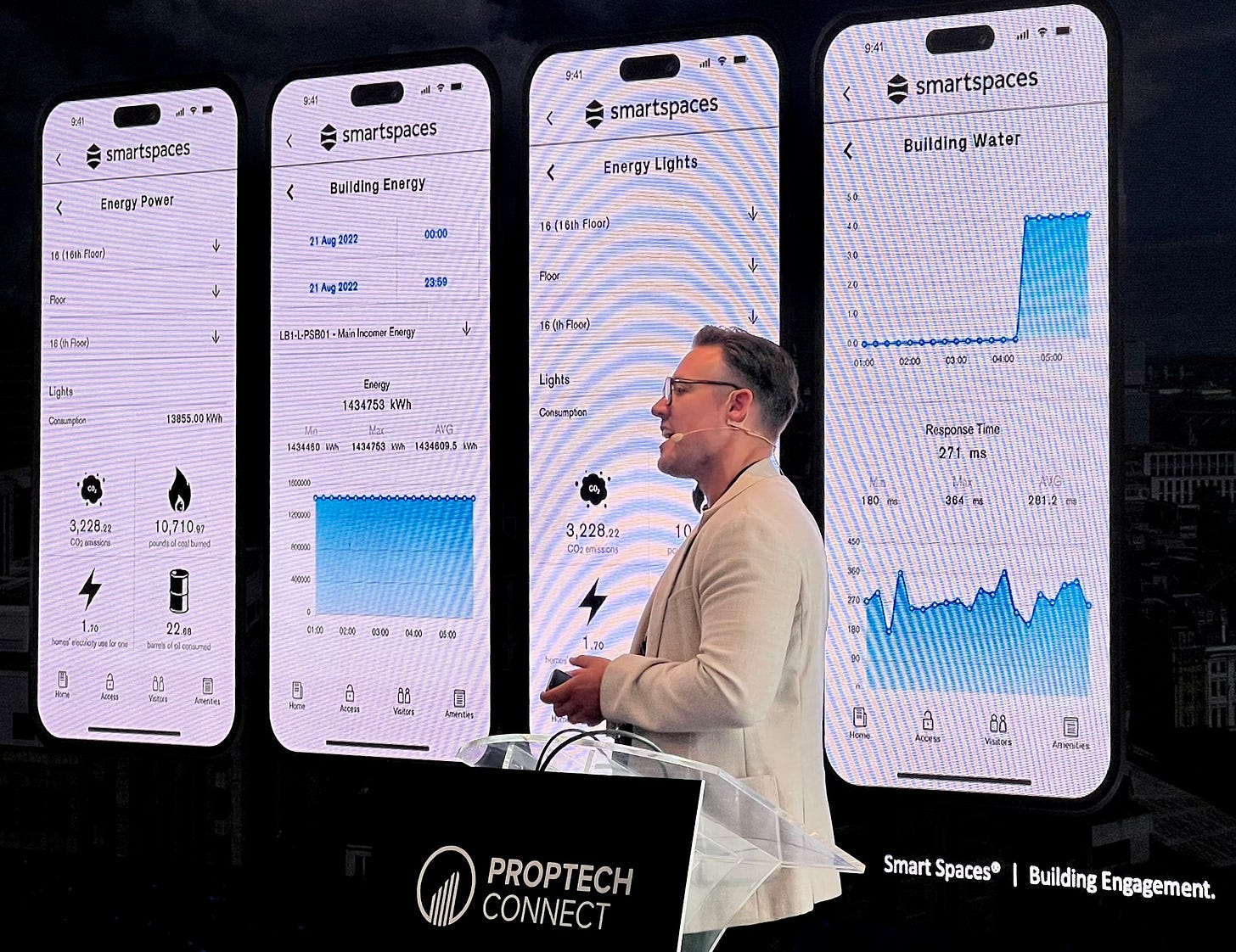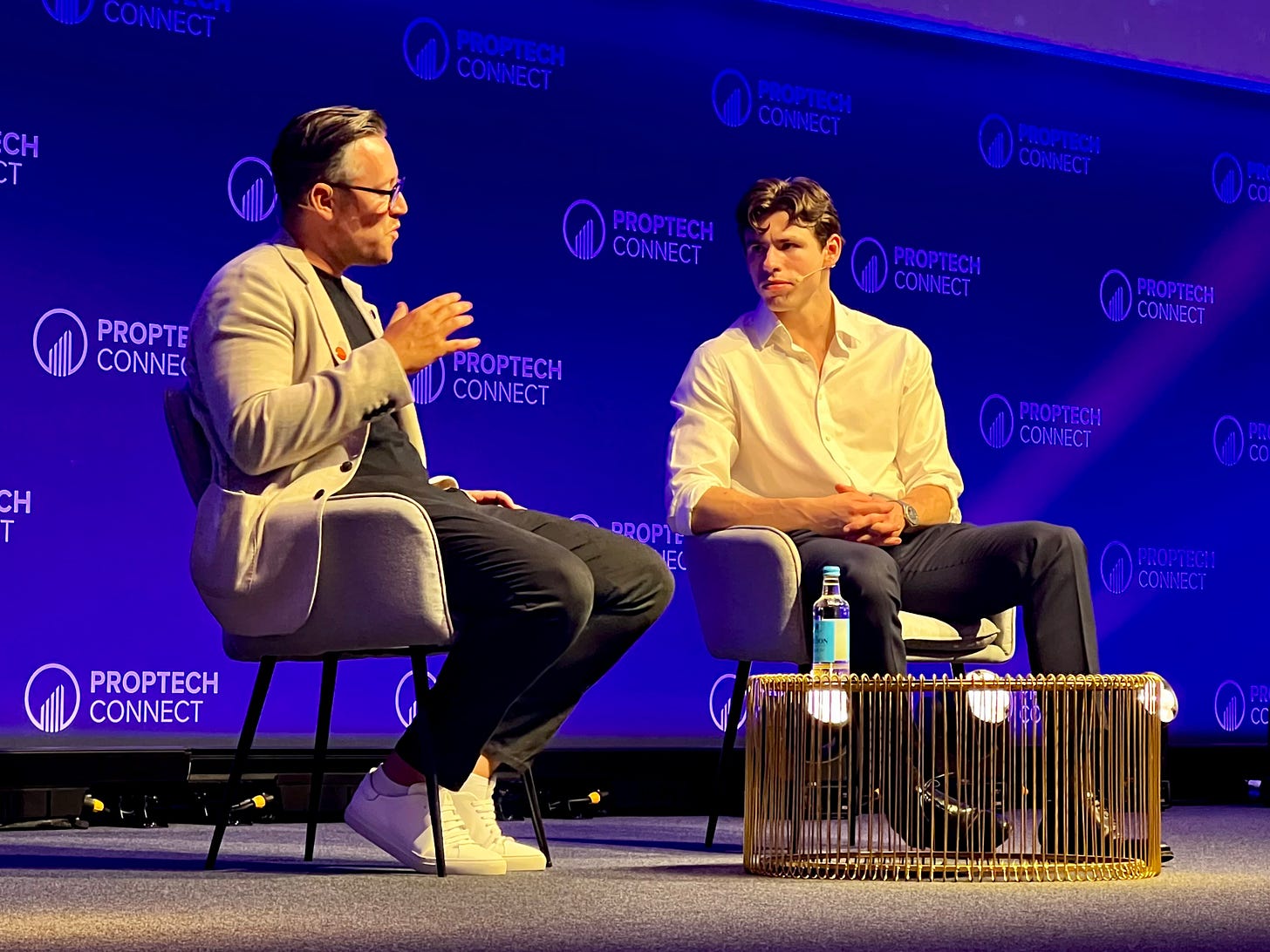PropTech Connect
The future's bright
I was only able to attend this two day event for an afternoon, but in that time I certainly got a taste of it. Big well done to Matthew Maltzoff for founding PropTech Connect.
It did what it said on the tin and definitely looked the part for “Europe’s largest proptech event”, with a main networking/display zone, food and drink breakout spaces, meeting/roundtable rooms and three large stages.

I only managed to catch a few useful snippets, but from the scale of this event, the people involved and level of interest there’s no doubting that our industry has an eye on technology and how it can help us going forward.
Let’s just remind ourselves… proptech is massively important in the real estate and property industry for many reasons. But I’d bet we instinctively all think of how it might impact or help the bit of the industry that we are most familiar with.
You should zoom out and realise how wide-reaching property and real estate is, before you then consider what proptech can do.
It enhances efficiency by streamlining various processes, from property listings, tenant communication and virtual tours to lease management and 3D scanning of spaces. This not only saves time but also reduces operational costs.
And it can also provide highly valuable data insights through analytics, aiding in informed decision-making for property investments, pricing strategies, portfolio management, and on, and on.
Then comes the customer experience. Innovative platform solutions and apps create smart buildings with simple automation and personalised controls, recommendations and more.
The world is becoming more digital, and I think it is fair to say that proptech is going to prove vital in staying competitive.
In my short time at the event, I heard Andrew Knight (RICS) talk about data and data standards. He said “the great thing about standards is that there’s so many of them”. The agreeable chuckles and murmurs on hearing this told me it’s true, and that we need consistency and a simple array of standards when dealing with data.
The other part of the data conversation that caught my attention was the panel agreeing that the best outcome is not for every company to hold their data in their silo. Instead, the panel were encouraging the industry to find ways to share and collaborate with data, which should lead to better analysis and outcomes.
I heard a stat that’s come up a lot recently - “80% of the buildings that will exist in 2050 already exist”. Whilst we know this, I liked the point being raised about data and proptech. Most of the stuff on show is demonstrated on new, shiny buildings that are not representative of the wider building stock. Yes, I know that’s a generalisation, but you get the point. Proptech needs to also make sure it is there to help the existing buildings, the basic construction types, the more mundane stuff.

Speaking of existing buildings, Matthew Maltzoff asked Dan Drogman (Smartspaces) if his platform works on existing buildings to which the answer was generally yes, caveated that if systems aren’t open protocol then some re-fitting may be required to facilitate a Smartspaces roll-out. I think that question was aimed at existing commercial buildings, rather than existing houses for example, but it’s good to hear that smart buildings isn’t something only for new buildings.

Even though the stuff on show was impressive, my mind moved towards what the future might hold. Dan can take credit for this, because he made the point that his Smartspaces app might not be what people use in the future. He suggested that things like the Apple Wallet in the future might not be static, but rather dynamic, and so perhaps some functions of todays apps move onto the Apple Wallet. I guess we should also think about things like AR/VR and how different strands of tech can come together in so many different ways.
The future’s bright…



